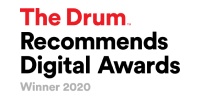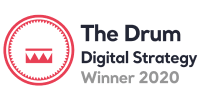The question, in this case, is why do we need content marketing strategies?
First of all, they help us build an entertaining and informative offering that is geared towards achieving a particular objective, like increased web traffic or building product or brand awareness.
Beyond that, these strategies help us adopt a long-term thinking mentality. They keep us on track, help marketers identify new opportunities, and breed creativity across all of the digital assets.
Ordinarily, many marketing managers – maybe even you reading this – will probably gather their team together around a table (or a Zoom call given the way we work has changed) and thrash it out over what we call an ideation session.
You will mind map it out, chuckle at a funny idea, and sit back in awe at the team member that has reeled off that fantastic, game-changing campaign proposal that gets everyone excited.
Job done.
Mind map completed, a plan is strung together – one that typically spans between a six and twelve-month timeframe. And once it’s signed off, the fun begins. It’s time to generate the content.
Now, it’s time for a disclaimer. I’m not writing this article to say this approach is wrong. Combined with deep, well-researched data and with a particular goal in mind, this absolutely does the trick and ticks the box.
All I’m here to do is tell you that there is another layer that can be added on top of that, one that, once completed, will blend together content and context right from the very beginning and will last you the duration of the strategy.
Welcome to the concept of the deep-dive interview.
In this article, I outline what the term deep-dive actually means, how they educate strategy, and how they can be used across all of the assets available at a marketer’s fingertips…

What does the term deep-dive interview mean?
Googling the definition of ‘deep-dive’ yields the following answer: an in-depth examination or analysis of a topic.
But, how does that look in practice?
At its very core, deep-dive interviews are informal recorded discovery sessions where one person, in this case, the marketer, spends time with a senior employee to gather content and context.
In this particular instance, adopting deep-dive interviews as part of the strategy development process allows us to understand a number of factors, including:
- The purpose of the business
- What’s on the agenda? What’s important to the company over the next year?
- What is happening in the industry that customers need to be aware of?
- What are the trends?
- What are the customer pain points – what is the plan to address them?
- What expertise can we pass on around a particular subject matter?
- Projections and predictions
Deep-dive interviews educate our decision making and identify trends
Factoring in deep-dive interviews at the beginning of your strategy process comes with a heap of benefits.
Perhaps the biggest of those is that they educate brand and content marketing strategies.
After going through, admittedly, the dull process of transcribing these interviews, you will spot patterns and trends. They hand-deliver marketers a clear picture of what is important to the business – not just now but in the future – and allows us to find out exactly what conversations the business wants to be part of within the industry.
A completed deep-dive interview transcription gives us a platform to jump from.
It hones in creative thinking, backed by a better understanding. It gives us content to work from even before a strategy is built. It gives us words that are ready to be mixed with quality research and data to produce compelling and eye-catching content. It’s built both for proactive and reactive purposes.

Deep-dives bring an additional layer of usefulness for agency-based marketers
Who doesn’t like to learn something new, right?
It goes without saying that deep-dive interviews are not exclusive to in-house marketers.
For those working in the field of agency, perhaps across multiple clients in several industries, deep-dives are an opportunity to get a first-hand account of a new client, the industry they operate within, the challenges they face, their flaws, and what makes them different.
It comes back to the point of education. Yes, deep-dives are a great tool to educate a strategy. They’re also a great educational tool with the capacity to help an agency-based marketer get to grips with and build an understanding of a new sector they may have never worked in before.
Deep-dive interview content can be used across all assets
Once your deep-dive interviews are completed, the collected content is a treasure trove of opportunity.
Below is a guide of how that content can be used across owned and shared platforms:
- Thought-leadership – the likelihood is you will have views and opinions ready to be packaged together into a thought-provoking article for your relevant trade publications
- Blog – similar to the above, these interviews can be chopped together and utilised for on-page content
- Social – is there a striking quote or opinion that can be used on social media? Blend the words with creative and you have yourself a nice graphic
Newsjacking – have you seen a relevant journalist enquiry that you have covered off with your deep-dive? If so, you have got quotes that are ready to go in order to beat the competition - Audio – due to the nature of the conversation, the audio you’re left with sounds not too dissimilar to a podcast. There are plenty of tools out there that can chop the audio up for use
- Video – while you can voice record, depending on the topic you’re covering, it could be worth video recording the chat and creating a compelling piece of interview material to be used across all of your assets to support the words you create alongside it
How to conduct a thorough deep-dive interview that will be built to last
While not sharing the name of the brand, I recently completed a set of deep-dive interviews over a two-month period – there were six in total.
Since being completed and transcribed, I have been able to build that company an educated 12-month content marketing strategy, as well as another plan for an upcoming campaign that focuses on a particular topic.
The entirety of that strategy is built with the consumer in mind.
The six deep-dive interviews, each lasting between 30 minutes and one hour, generated a 41-page transcript full of quotes, opinions, insight, and data that are going to be used for a number of different content types.
Below is a list of seven starter questions that I factor in as part of every deep-dive, regardless of industry:
- What are the businesses biggest targets and priorities in the next one to five years?
- What is changing in the industry?
- How are your consumers being impacted by the above change?
- What are your consumers passionate about and how are you contributing to that?
- What pain points will your consumers be facing in the short, medium and long-term future?
- How is a particular service or product we are launching going to positively impact the industry or consumer?
- What are the solutions to a consumer’s problem?
These conversations are generally fluid, so while the above consumer and audience-centred content will provide great insights, the art of deep-dive interviews lies in picking up the golden nuggets that crop up and force you to pivot.
This could include asking the interviewee about a recent industry report that was published, an upcoming event, or a debate that you may have seen take place on social media.
Final thoughts
As the saying goes; no pain, no gain.
Let’s start with the obvious con (the pain). The process of completing a deep-dive interview is long and arduous. Transcribing is also not a task that fires up the amygdala and pumps excitement through our bodies.
If you’re completing a collection of these interviews, it would hardly be a spoiler to say that it is a time-consuming process that can feel like a shackle holding you back from getting stuck into creative mind maps and the idea-generating conversations that are a buzz for marketers. The reasons why we wanted to get into this industry.
That being said, deep-dive interviews are also invaluable to the process of strategy building (the gain).
Done right, they not only provide genuine insight but also content built to last the length of a content marketing strategy, providing source material that can be utilised for every platform available at our fingertips.
Even so, they provide us with guidance to be able to create a long-term strategy that is built on education and with the relevant audience at heart. They allow us, as marketers, to make better decisions to create content that resonates and answers the questions that are being asked.
It’s amazing what you can garner from a conversation.
If you want to have a conversation with us, don’t hesitate to get in touch.








